The viral online clothing company Parke, founded by influencer Chelsea Kramer, is facing criticism after a popular sustainability-focused creator (@sustainablefashionfriend) alleged the company sources its clothes from low-cost bulk suppliers, despite branding itself as transparent and intentional. The claims have sparked widespread discourse and backlash, and reignited conversations around ethical fashion and what influencer-led brands owe their customers.
The transparency paradox
In two videos posted to TikTok and Instagram, Sustainable Fashion Friend showed how she came to her conclusions. As part of her image around transparency, Kramer often films the day-to-day running of her business. Within this footage, the brand sleuth spotted documents among fabric samples that included names and addresses.
In the first video, she highlights Qingdao Gu Ang Industry And Trading Co., a bulk clothing manufacturer located in Shandong, China. They sell their items on Alibaba, a website where many fashion brands find their suppliers. Some of these brands engage in a practice called “white labeling”—slapping a brand label over the original tags from the bulk apparel company without otherwise altering the items.
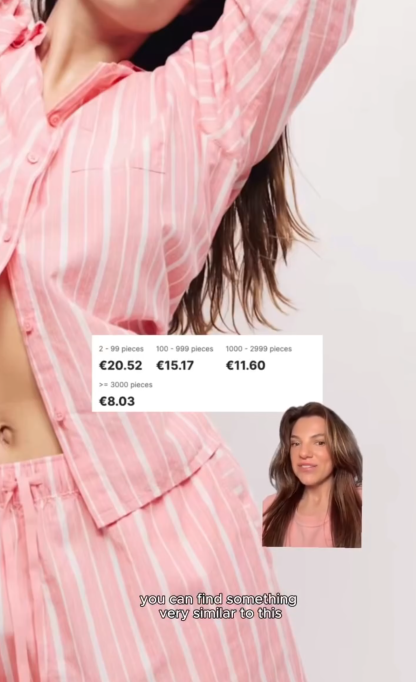
Sustainable Fashion Friend posted side-by-side comparisons between items she found on Alibaba and those sold by Parke, arguing she did not see many differences besides the price tag. While Kramer sells pajama bottoms and denim shirts for prices around $100-200, the lowest bulk price from wholesalers is often under $10.
In a second video, Sustainable Fashion Friend points out another possible supplier after spotting the name “Zhongshan Zuoyo” in another of Kramer’s videos. This one is a bulk denim apparel company that also sells on Alibaba.
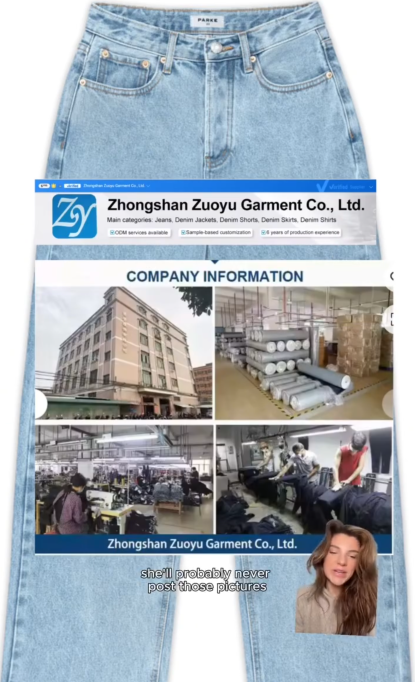
The price markup isn’t the only problem, according to the sustainability researcher. Sustainable Fashion Friend is more interested in the ethics around manufacturing and selling apparel. She points to the factory photos in Zhongshan Zuoyu Garment Co., Ltd.’s Alibaba profile.
“If [Kramer[ really cared about the brand and what it stands for, she’d show the full process,” the researcher wrote. “The factory. The workers. Their names. The wages. The conditions. But instead, we get color palettes and face icing routines because that fits the aesthetic better.”
Big influence, bigger backlash
The practice of buying in bulk and selling at a markup is nothing new, predating TikTok and the internet. These days, even white labeling is common among TikTok sellers. The intensity of the backlash following Sustainable Fashion Friend’s videos likely has a lot to do with Kramer’s popularity and previous claims of transparency.
On Oct. 29, 2024, Forbes published a profile on Kramer and her “transparent marketing” that took her from a small TikTok following to a company making $15 million within two years.
“I truly believe that transparency is key to building a strong brand, in any sense,” said Kramer for the story. “Since inception I’ve shared my journey of the business on social media, showcasing our successes as well as the daily challenges I face running a company and that my team faces.”
However, after her own followers urged her to look into Parke, Sustainable Fashion Friend quickly hit an opaque wall. The company website had little to no information on the source of its apparel.
“They won’t even say if it’s imported or even the country it came from,” she revealed. “And if you look up her LLC and import records, nothing is gonna pop up.”
@chelseaparkee Who even is Chelsea parke anyway this hair style is so ugly 🤷♀️🤷♀️🤷♀️
♬ original sound – chelsea parke
In April 2025, Kramer got another boost after the “Chelsea Parke claw” hairstyle went viral. Kramer started the trend with a video of herself putting her hair up in her usual style with the tongue-in-cheek caption, “Who even is Chelsea Parke anyway this hair style is so ugly.”
This launched a huge crop of videos with women trying out the style for themselves and brought yet more attention to the already popular Parke.
Kramer denies the Alibaba allegations
Kramer denied the Alibaba allegations in a recent profile by The Cut, which says she “works with a technical designer to design samples that go through several rounds of changes in fit, wash, and color.” This claim did little to slow the backlash against her and Parke as commenters accused her of misleading viewers and customers.
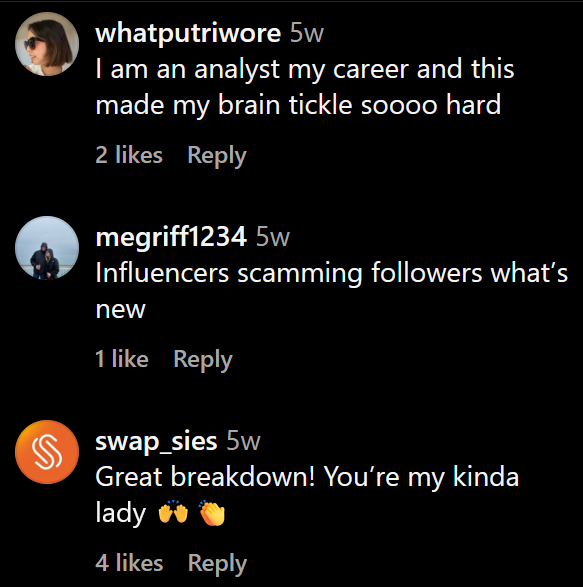
“This is infuriating as a sustainable fashion brand,” wrote @se_cox on TikTok. “These are made in the USA prices. So shady.”
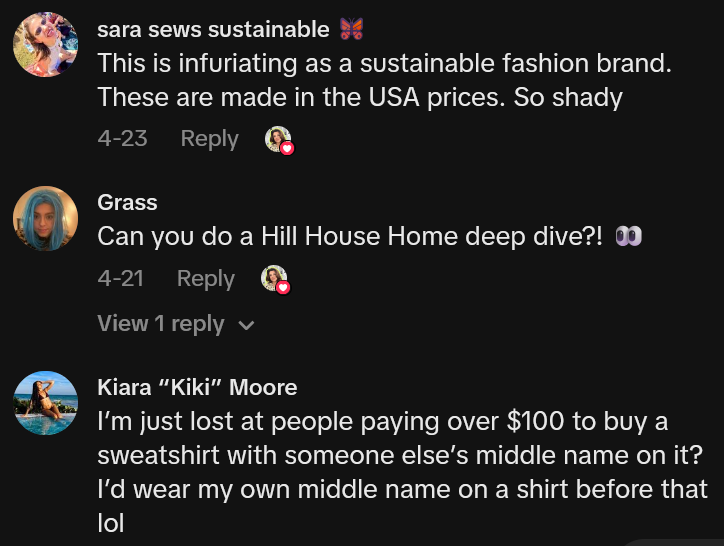
Some defended Kramer, pointing out that buying in bulk and marking the price up is a common practice.
“I love this deep dive but cost of goods are always 10x cost or more so this is on par – it costs a lot of money to run a business she’s probably making 30% profit,” argued @josephmaine back on Instagram.
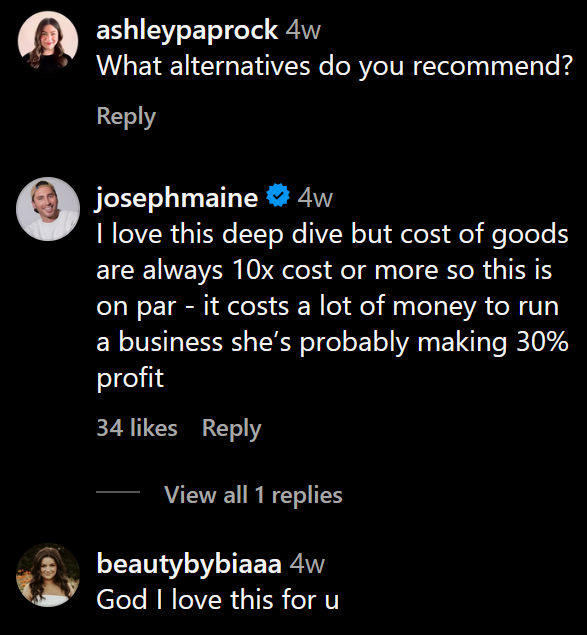
However, it seems that Sustainable Fashion Friend’s deeper point is that fashion influencers like Kramer portray a misleading image.
“A lot of influencer brands/brands in general sell storytelling instead of real quality and transparency,” she said. “They’ll call something sustainable, intentional, or unique when it’s really a $15 hoodie from a factory they’ll never name, nor visit, and deny when they get connected to it.”
The Daily Dot has reached out to Parke via TikTok and @sustainablefashionfriend via Instagram.
The internet is chaotic—but we’ll break it down for you in one daily email. Sign up for the Daily Dot’s web_crawlr newsletter here to get the best (and worst) of the internet straight into your inbox.


